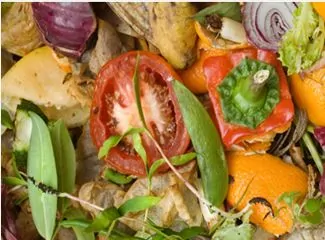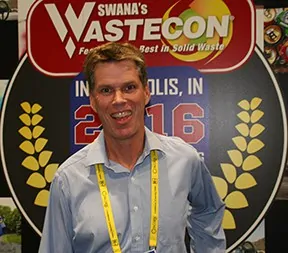

At USCC 2024 Dave Aldridge of the Southeastern Connecticut Regional Resources Recovery Authority and Greg McCarron of SCS Engineers present Planning and Development of a Public Compost Facility based on a compost facility and programs when disposal capacity is nearing its limit.
The Southeastern Connecticut Regional Resources Recovery Authority (SCRRRA) is the waste management and recycling authority for its twelve member municipalities. Since 1984, SCRRRA has been responsible for implementing solid waste recovery systems, and coordinating recycling and disposal services. Due to the closure of a major waste-to-energy facility in July 2022, Connecticut has a shortfall in disposal capacity that has resulted in an estimated 860,000 tons of municipal solid waste being shipped out of state for disposal, mostly to landfills. SCRRRA estimates that disposal tipping fees will exceed $100 per ton in the near future.
The Connecticut Department of Energy & Environmental Protection’s Comprehensive Materials Management Strategy recommends implementation of organics collection programs and processing facilities, in an effort to manage waste within the state. Aldridge and McCarron’s presentation covers the planning and development steps taken by SCRRRA to permit and build a regional compost facility that will accept food and yard waste. The proposed facility will accept organic material from all of its member towns and regional businesses, and produce a high-quality soil amendment for farmers and gardeners. SCRRRA will also provide finished compost, at reduced cost, to disadvantaged communities in the region, for community gardens and beautification projects.
Planning and Development of a Public Compost Facility covers the following topics:
1. Regional waste landscape.
2. Permitting and execution of an aerated static pile (ASP) pilot test.
3. Preparation of a feasibility study and pro forma.
4. Site options and considerations.
4. Local site permitting, and,
5. Next steps, including design and construction.
About Aldridge & McCarron: David Aldridge is the Executive Director of the Southern Connecticut Regional Resources Recovery Authority responsible for implementing solid waste recovery systems, recycling, and disposal services in twelve Connecticut municipalities with a population base of 230,000. Dave has been the Executive Director of SCRRRA for over 12 years, responsible for all financial, administrative and operational functions of the Authority using his 25 year background as a logistics industry executive responsible for transportation and distribution with expertise in process improvement and operational efficiency.

Both speakers are engaged with many associations, coalitions, and committees focusing on leading edge waste management in the U.S. including the US Composting Council.

SCS is helping public and private entities evaluate their organic waste streams and the applicability of established and emerging technologies (e.g., composting, anaerobic digestion) to their specific communities and circumstances. Current and recent project examples include the following:
SCS is actively pursuing work in the organics materials management sector and has a staff devoted to staying current with the latest trends and technologies. SCS can evaluate, design, permit, construct and operate organics facilities, using varying technologies. Compost technologies that SCS is considering for implementation include:
Anaerobic digestion (AD) technologies that SCS is considering for implementation include high solids (dry) or low solids (wet) systems. High solids/dry systems are applicable for food and yard waste. Dry systems for food and yard waste generally use tunnels, which are gas-tight, concrete, garage-like chambers and are loaded using front-end loaders. Low solids/wet systems are applicable for manure, sludges, and liquid industrial waste. Wet systems generally use vessels, which are mixed and are fed using pumps.
Learn more about these SCS services.
